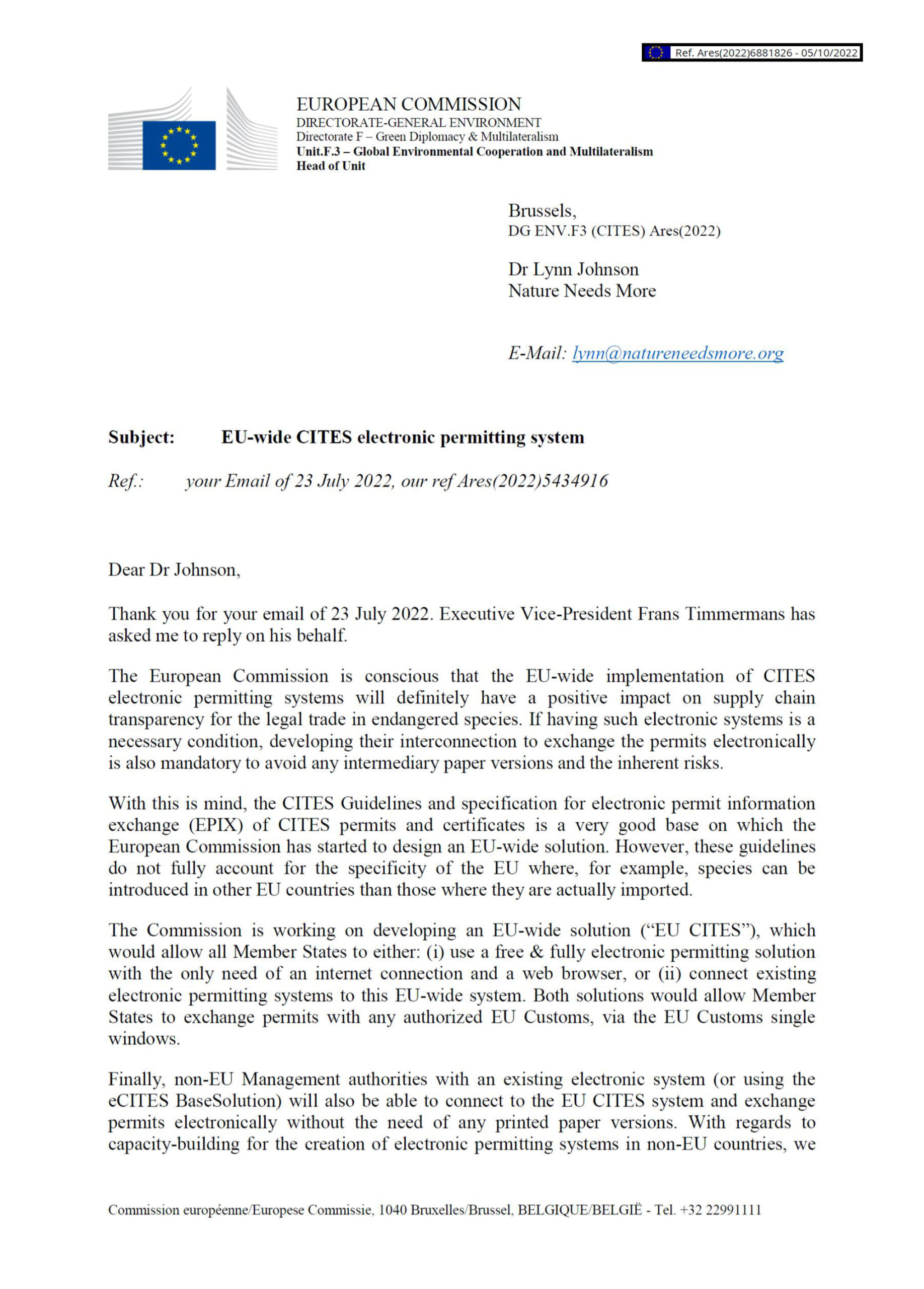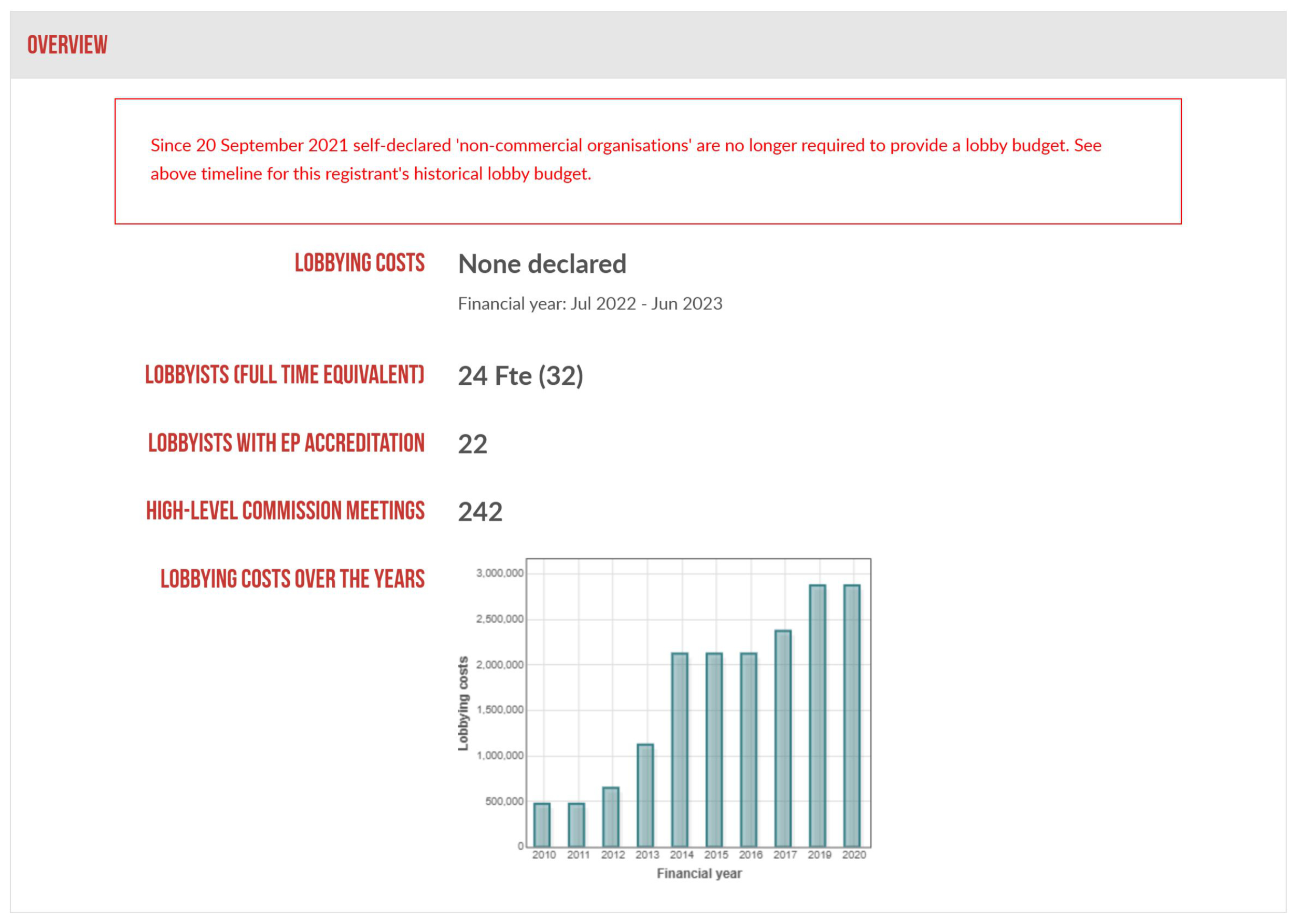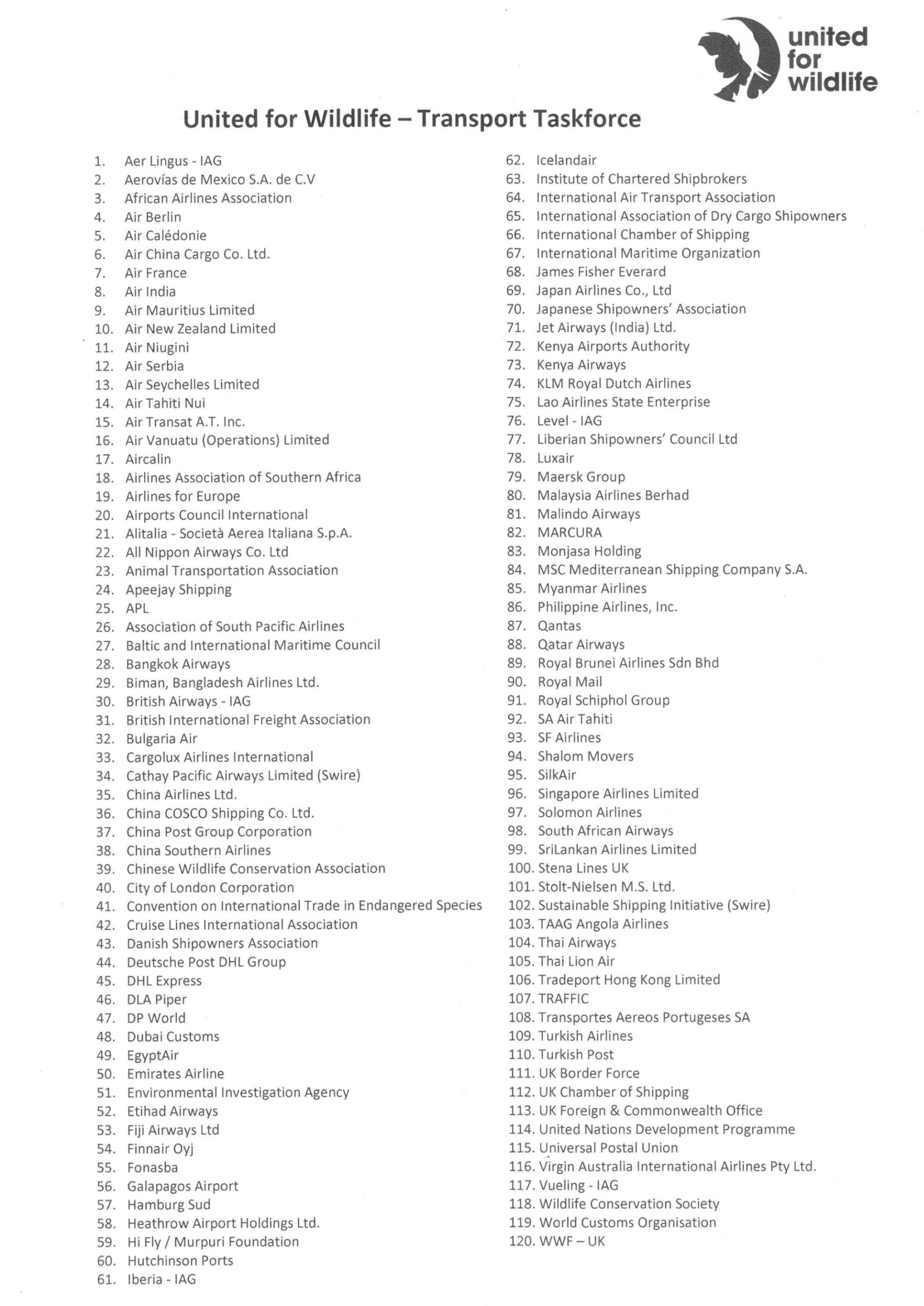
The world has seen an exponential increase in the amount of data generated each day. This has happened because big data has the power to provide a competitive advantage in the globalised and hyper-competitive world of business. But this is only half the story.
While big data is big business, and often called the new oil, some systems are left to languish in a pre-digital world, opaque to effective monitoring. Whilst the regulation of most industries has been undermined in the last four decades, one is a standout, namely the extraction of wild species for trade.
This is maybe best illustrated with the example of Europe. Europe is the biggest profiteer from the trade in wild species. A 2016 European Parliament Report admitted, “The wildlife trade is one of the most lucrative trades in the world. The LEGAL trade into the EU alone is worth EUR 100 billion [US$105 billion] annually”. Yet 24 of the 27 countries of the European Union (EU27) still use a 1970s paper permit system to manage a trade that the European parliament has acknowledged to be one of the most lucrative trades in the world.
Why the conservation sector holds Europe up as a leader in dealing with wildlife crime is confusing, because, the reality is, Europe is a laggard. Outside of EU27, while Switzerland and Norway have modernised their CITES wildlife trade permit system, the UK still uses the 1970s CITES paper permit system.
In July 2022, I wrote to Frans Timmermans, then Executive Vice President of the European Commission and responsible for the European Green Deal. My email to him was in response to an interview he gave to The Guardian. The article stated, The human-made crisis engulfing the natural world is “just as threatening, perhaps even more so” than the climate crisis, one of the EU’s most senior officials has warned. Speaking to the Guardian, Frans Timmermans, the vice-president of the European Commission, said he hoped “we can heighten the sense of urgency” about the destruction of the natural environment, where the situation is “really very, very scary”.
In my email to Timmermans, I pointed to the very pragmatic and cost-effective step the EU27 could take to significantly address biodiversity loss, namely an EU wide implementation of a modern CITES electronic permit system, and pointing to the fact that that only France, Belgium and the Czech Republic had modernised their CITES trade permit system.
The response to my email outlined the EU’s plans regarding modernising CITES permits and that the these plans would be presented at CITES CoP19, in Panama in late 2022. From the letter:
“The Commission is working on developing an EU-wide solution (“EU CITES”), which would allow all Member States to either: (i) use a free & fully electronic permitting solution with the only need of an internet connection and a web browser, or (ii) connect existing electronic permitting systems to this EU-wide system. Both solutions would allow Member States to exchange permits
The EU CITES solution is currently in development and testing by a number of EU Management and Customs authorities. It will be presented in a side event of the 19th Conference of the Parties to CITES, in Panama in November. The first version of the system, which will support the exchange of import electronic permits and certificates of specimen listed in Annex B of the Council Regulation (EC) No 338/97, will be operational in 2023, and extended to other types of permits in later versions. Member States will be encouraged to develop their interconnection to EU CITES as soon as possible.”
While this EU system has been available since 2023, as of February 2025, NO EU country has implemented it.
So, the region of the world known to be the biggest profiteer from the legal trade in wild species has done nothing to more effectively monitor and regulate this ‘lucrative’ trade. All this when the CITES trade is overwhelmingly a luxury trade and that the businesses ultimately profiting from this trade a large luxury companies and conglomerates.
These companies are concentrated in handful of markets, and dominated by EU; after seafood, fashion and furniture are the biggest users of wild species as their raw materials.
And now, as reported in Politico, “Von der Leyen builds bonfire of EU’s environmental red tape”. When it comes to the legal trade in endangered species listed under CITES, I am not sure what Von der Leyen and Brussels can simplify because right now the region’s regulation of this trade couldn’t be any more basic and inadequate.
The push to simplify regulations comes in parallel with the publication of the 2025 Europe Sustainable Development Report, which assesses the status of the Sustainable Development Goals and highlights a lack of progress across the EU.
SDG12 – responsible consumption and production – is hardly a glowing endorsement of what is happening in Europe as a whole!
Beyond the EU27, the UK must also be singled out for the country’s glacial pace to modernise the country’s CITES management system.
The self-righteous way DEFRA goes on about the UK government’s Biodiversity Challenge Funds, including its Illegal Wildlife Trade (IWT) Challenge Fund, while ignoring that it still uses the 1970s CITES paper permit system to manage trade is highly questionable. The discrepancies in the UK CITES trade are well known and there is ample evidence that UK national trade records that should be possible to reconcile – CITES, UK’s customs authority, HMRC – are in fact irreconcilable.
In communications with the relevant UK Ministers and meetings in early 2019, BEXIT was obviously the excuse for why this hasn’t been addressed. Brexit officially took place at 23:00 GMT on 31 January 2020, but modernising the UK’s CITES system is still not done. The UK’s updated CITES permit system, together with the 24 countries of the EU who still use CITES paper permits, have been in the ‘development and planning’ stage for the last 5 years.
While a growing number of conservation organisations and academics are accepting CITES isn’t working, it is clear that neither the European parliament or individual European CITES signatories are being held to account for their CITES management system still languishing in 1970’s technology.
So why aren’t the establishment conservation organisations doing this? WWF-EU is in the top 10 lobbying organisations to the European Parliment. The organisation has 24 FTE lobbyists, 22 of whom have EP Accreditation. While a 2021 EU rule change means that WWF-EU no longer has to provide its lobbying budget, in 2020, the last year budget transparency was required, WWF -EU’s lobbying costs were nearly €3 million.
Let’s be honest, this is not being done because business and governments don’t want regulation (or anything that they perceive will impact trade), and establishment conservation organisations have capitulated to these wants.
Another obvious example is the United for Wildlife’s (UfW) Transport Taskforce. The UfW website states, ‘In 2014, Prince William announced the formation of the United for Wildlife Transport Taskforce to engage the transport sector in identifying and developing relevant and targeted solutions to wildlife trafficking. The Taskforce brings together stakeholders including airports, shipping companies and airlines with law enforcement and other agencies to identify and facilitate action led by the private sector.’
I found a list of UfW’s Transport Taskforce from the early years. Do you believe that the 120 taskforce members couldn’t work out that a 1970’s CITES paper permit system, that doesn’t integrate with world customs systems, wasn’t a significant part of the problem? Really?… Really?
In February 2020, Nature Needs More wrote to Prince William regarding the needs to modernise CITES (and sent a copy of this letter of the letter to Willam Hague – then chairman of the Royal Foundation). In the letter we wrote, “We believe that that the United for Wildlife Transport Taskforce advocating for CITES signatory countries to implement the eCITES would be very much in line with both the stated intent of the Transport Taskforce and also with the self-interest of the 100+ transport companies that have signed up. Businesses could approach governments about this, as industry tends to have more leverage with governments than conservation NGOs”. We didn’t receive a response, though we did follow up after that pandemic.
You have to wonder why simple, pragmatic and cost-effective solutions are continuously ignored. It is very clear that the current CITES trade system enables fraud, laundering and the illegal wildlife trade. The lack of investment in supply chain transparency means businesses that use wild species as their raw materials can’t prove their offtake is sustainable or even legal, because using the obsolete, 1970s CITES paper permit system, the legal and illegal trade are so intertwined that they are functionally inseparable.
The current Secretary General, Ivonne Higuero, has admitted this herself, saying in 2023, “Unfortunately, problems can arise with the use of paper documentation, including fraudulent use. Complications in keeping track of documents during issuance, transportation, and verification could result in forged paper documents. This may involve declaring false information, altering documents, reusing them, or even theft. There also have been cases where lost paper permits were used illegally due to delays in reporting and the extended duration of subsequent notifications among Parties”.
Yet nothing has been done by the some of the wealthiest countries in the world, whose companies make big profits from this trade, to move away from the 1970s CITES paper permit system. The wealthy countries that have no excuse to be languishing in this 1970s paper system include, Canada, the UK, 24 countries of the EU, India, Japan, New Zealand, Oman, Qatar, Panama and Russian Federation to name just a few.
It is time for global conservation organisations to challenge this sorry state, not let these countries off the hook again by questioning the need for traceability in the trade of CITES listed species. Basing legality and sustainability on nothing more than wishful thinking is nothing more than a wildlife crime.
When we started this project, there were only 2 countries who had modernised their CITES permit system, not there are 20. This is too slow. If there are no real changes before CITES CoP20, then let’s be honest, CoP20 continues to be nothing more than a performative and academic exercise, which is all the wealthy countries profiting from this tragic trade want it to be.





